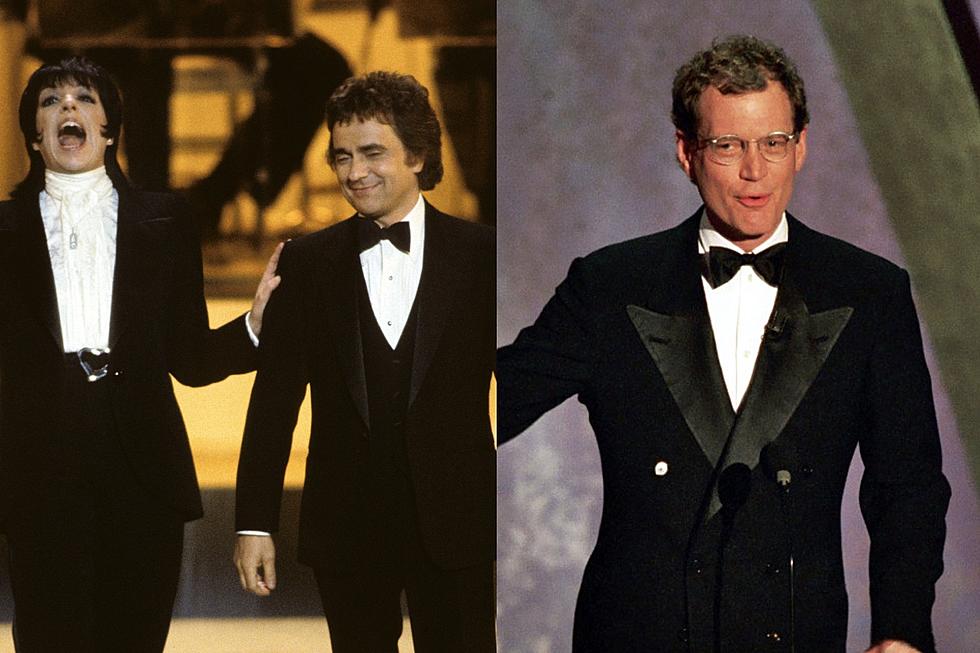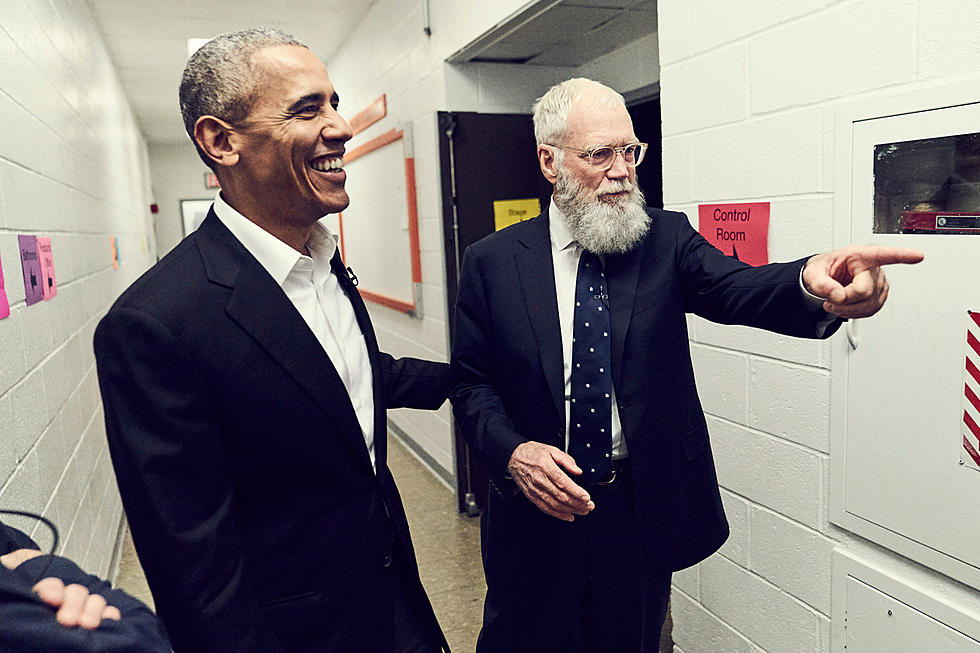
David Letterman, The Man Who Invented Internet Comedy
Tonight at 11:35PM, for the very last time, a new episode of The Late Show with David Letterman airs on CBS. Even though I stopped regularly watching Letterman years ago, I, like a lot of folks of my generation, are approaching the occasion with a heavy, nostalgic heart. David Letterman was a late-night institution for over 30 years; my entire life as a conscious human being. I cannot remember a time before David Letterman. In a changing world, he was a constant, as certain as death and taxes.
Everyone has their own personal memories of Letterman. Most of mine come from his first weeks on CBS. I was 12 years old in the summer of 1993. I was never allowed to stay up late enough for Late Night with David Letterman at 12:30, but at CBS he was on at 11:30, and because of the mass of publicity that heralded his arrival on a new network I was given special dispensation to watch.
To a 12-year-old, The Late Show was the most amazing talk show ever devised. Even though Letterman was already a 45 year old guy with giant suits and thinning hair, he was immediately the coolest man I had ever seen. He was a badass, too; on his very first episode, he fearlessly mocked NBC, who’d threatened him with legal action if he attempted to bring some of his well-honed bits to his new home. But he also teased CBS for the tacky way they promoted his Late Show debut. Here’s this guy, on his very first night on the network, and he’s making fun of his new bosses. I just remember thinking over and over, “You can do that?” At that age, it seemed like David Letterman could do anything. On one episode he took over the drive-thru at McDonalds and messed with people, just for the hell of it. In my nerdy eyes, David Letterman was as much a rock star as a talk-show host.
From the first moments of his first Late Night episode, Letterman was a rule breaker; a comedian who was just as pleased to befuddle an audience as he was to make them laugh. The McDonald’s bit was a larger production, but many of his sketches (and I use that term very loosely) were direct challenges to the television establishment and traditional notions of comedy. One popular recurring bit that started on Late Night and continued to the Late Show (sorry NBC) was Letterman (or his stagehands) dropping things from the roof of a five-story building (and later the Ed Sullivan Theater) onto the street below.
Another favorite was “Will It Float?” a mock game show where Letterman and sidekick Paul Shaffer would guess whether random objects would, y’know, float. Meanwhile, a random woman would grind her metallic bodice, sending sparks flying everywhere.
I fell down a deep YouTube hole earlier this week, watching old Letterman clips like these. What surprised me most were how many of them still felt fresh upwards of 30 years later. Letterman surely wasn’t the first person to toss stuff off rooftops for kicks, or to mock the stuffiness of late-night television from inside the form of a stuffy late-night TV show. But if Letterman didn’t create Internet comedy, he certainly inspired more of it than he’s given credit for. Many “viral videos” are direct knock-offs of Letterman bits. This famous “machine that destroys everything”:
Is essentially Dave with his 90-ton hydraulic press from 1987:
(Or, for that matter, Dave crushing things under a steamroller):
And then, of course, there’s...
At this point, what percentage of the Internet would you say is comprised of dumb pet videos? 20 percent? 30 percent? More? We could rename YouTube (or Facebook [or Instagram]) Stupid Pet Tricks, and it’d be accurate more often than not.
Letterman still does Stupid Pet Tricks, but he phased out most of the low-rent, high-concept stuff years ago. Meanwhile, his blend of bizarre yet compelling stunts, pranks, and oddities has been taken up by Letterman’s younger TV competitors and an endless parade of YouTube stars who, armed with a camera, a snarky attitude, and maybe a 90-ton hydraulic press or two, found great success with Letterman’s formula online. It’s been odd to watch David Letterman’s star decline and recede as the form of comedy he pioneered ascended.
In a wide-ranging farewell interview with The New York Times, Letterman talked about Tonight Show and Jimmy Kimmel Live! hosts Jimmy Fallon and Jimmy Kimmel’s obsession with viral videos. Did Letterman, the Times’ Dave Itzkoff asked, consciously decide to “stay out of that arms race”? His response:
No, it just came and went without me. It sneaked up on me and went right by. People on the staff said, ‘You know what would be great is if you would join Twitter.’ And I recognized the value of it. It’s just, I didn’t know what to say. You go back to your parents’ house, and they still have the rotary phone. It’s a little like that.
That attitude is borne out by statistics as well; the official @Letterman Twitter account has about 330,000 followers; Letterman’s incoming replacement on the Late Show, Stephen Colbert, has 7.8 million. (Kimmel’s got 5.2 million; Fallon 2.6 million.) While this video of Grumpy Cat doing absolutely nothing has 18 million views on YouTube, this recent installment of Stupid Pet Tricks where a dog drinks a soda (!), generated just 37,000 views. David Letterman, who practically invented Internet comedy, finds himself essentially replaced by Internet comedy. It’s almost Shakespearean in its irony, except none of the Shakespeare plays I’ve read end with the hero happily retired with tens of millions dollars.
The X factor Letterman’s successors added to his schtick was celebrity. Instead of just having the host act like a goofball, they got famous movie stars — or even the goddamn President of the United States — to act like goofballs, by playing a drinking game, or Battleship (with drinking), or slow jamming the news. Letterman’s fatal flaw appears to be his commitment to old-fashioned broadcasting; to actually having a conversation with his guests instead of, say, trying to beat them in a game of Catch Phrase.
Ultimately, Letterman remained a constant for so long that his consistency became his liability; he didn’t change with the times, so the times changed without him (and, in part, thanks to him). Letterman, who idolized Johnny Carson, had some quirky notions about comedy, but he also had some dated values about interviews, and in time he became he very thing he once felt like an alternative to. It’s a classic story; the outsider can only hang around so long before he becomes the establishment.
So this farewell was inevitable. But now more than ever, Letterman’s influence is everywhere; in every funny-looking pet that becomes a household name and every cranky comedian who randomly yells at people on the street. If Letterman made a mistake it was this: He didn’t make Stupid Pet Tricks stupid enough. Or try Stupid President of the United States Tricks. The kids would have loved that one.
More From ScreenCrush









